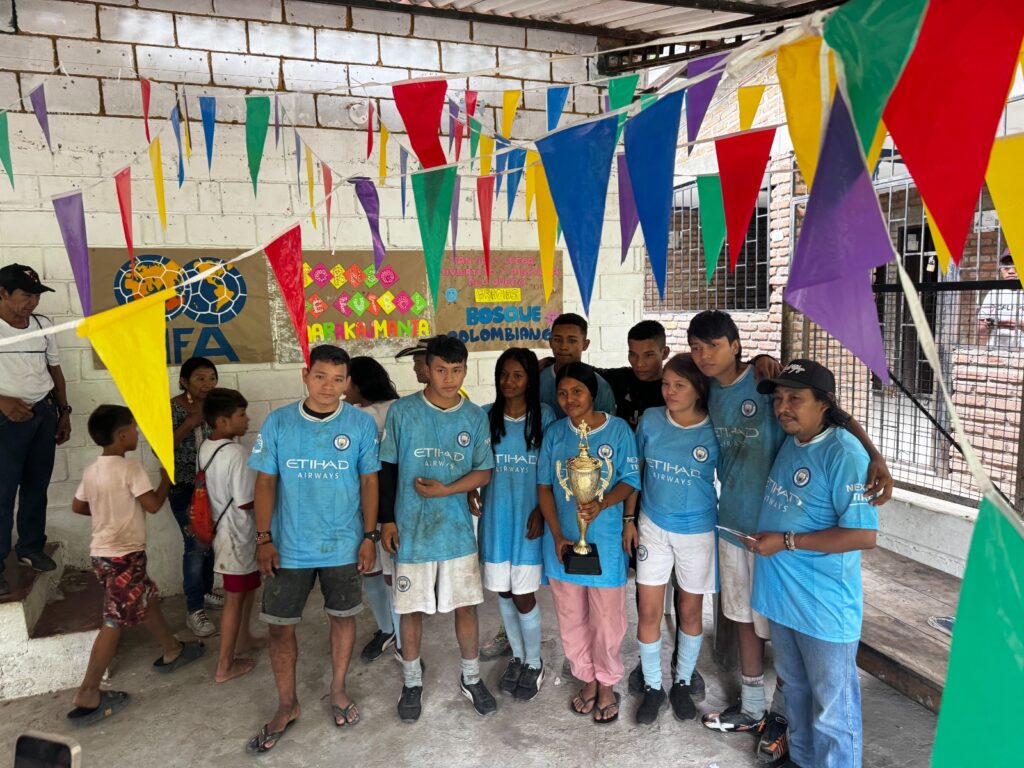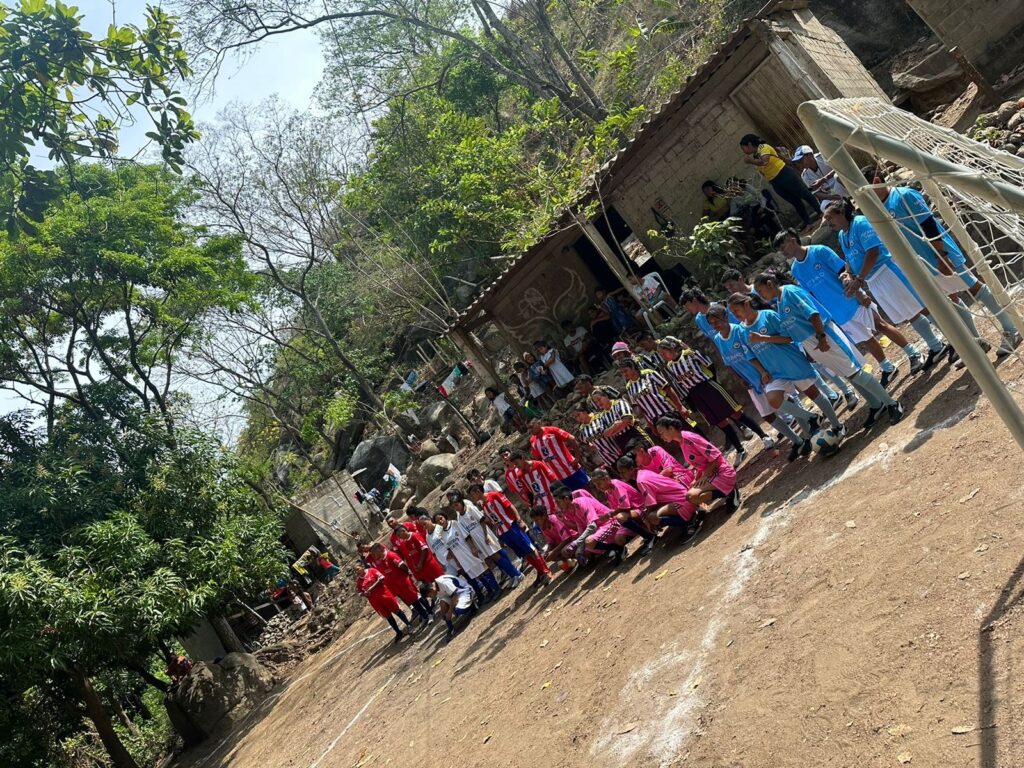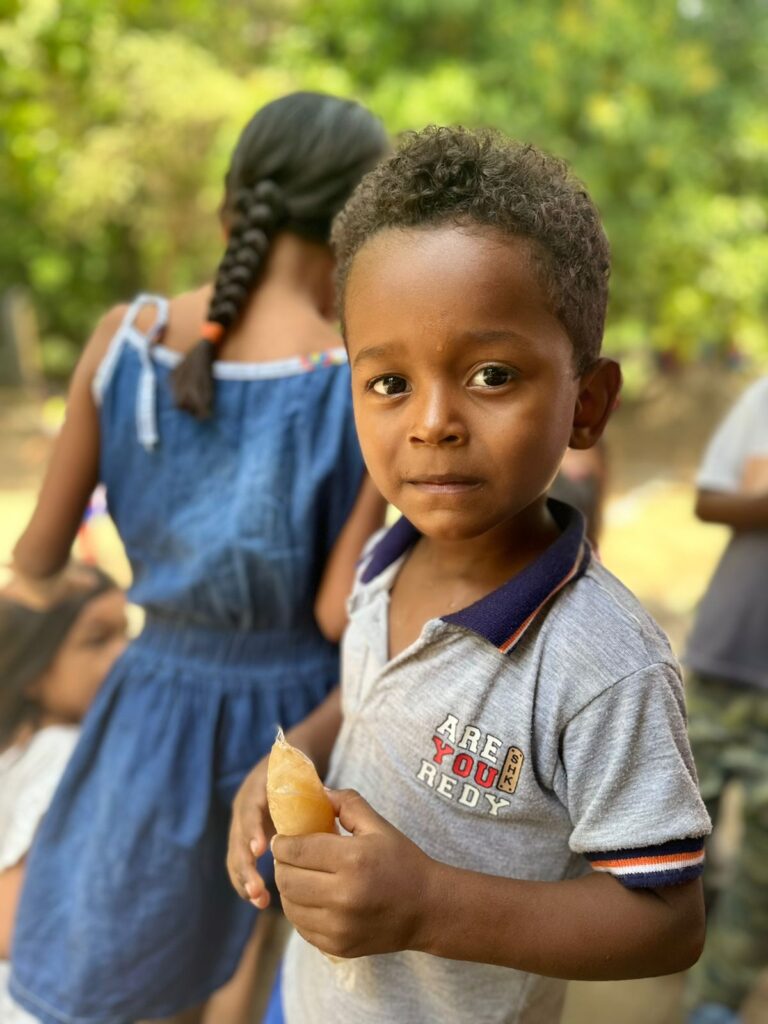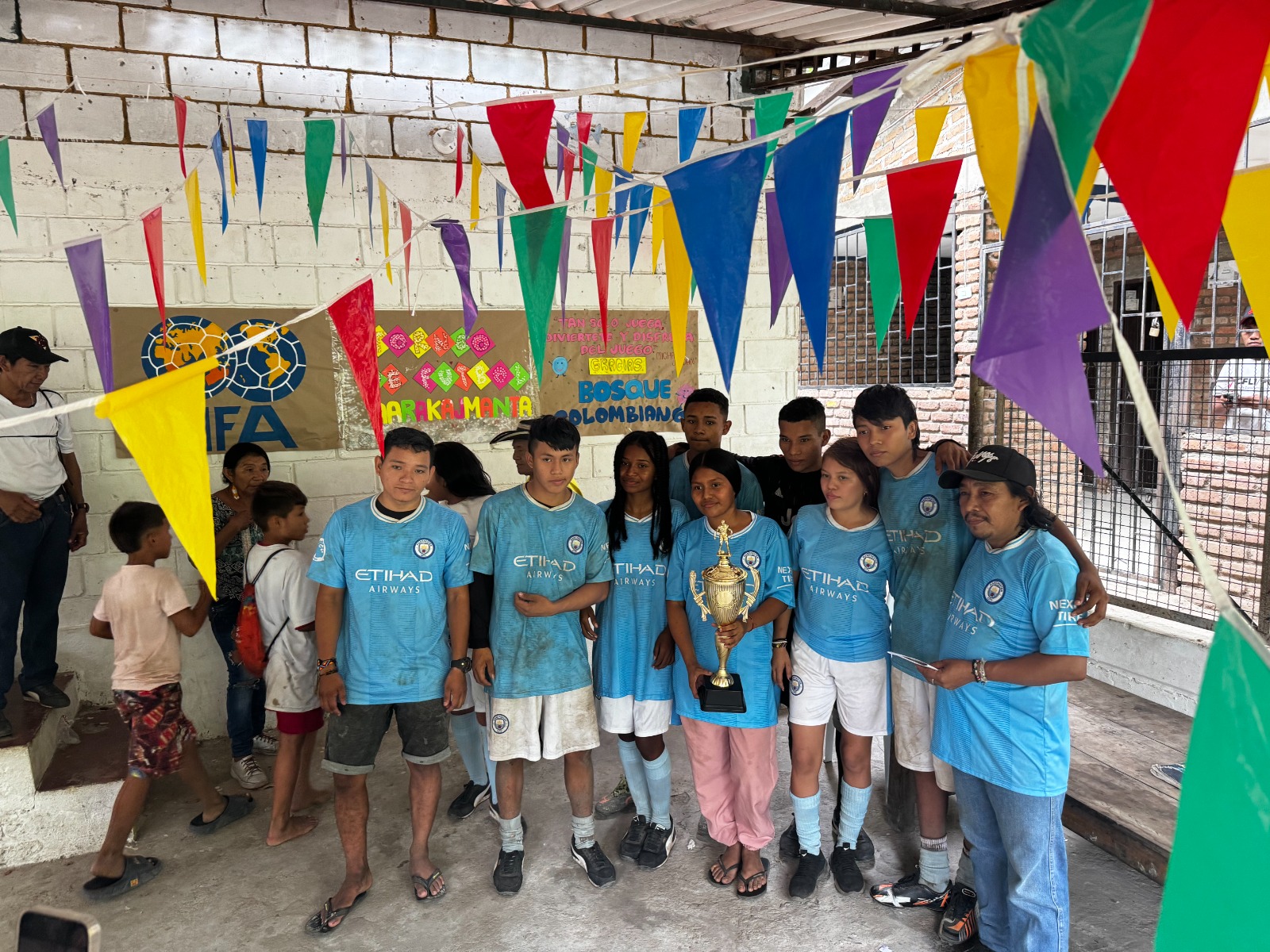SUMMARY
The Yucuná indigenous community, located in the Colombian Amazon basin, faces significant challenges due to water insecurity exacerbated by climate change. This phenomenon has altered traditional climate patterns, resulting in prolonged periods of drought and episodes of intense rain that affect the availability and quality of water. Approximately 300 women, girls and LGTBI people from this community, recognized as water managers, are responsible for the collection and distribution of water, activities that expose them to risks of gender violence and limitations in their socioeconomic development.
“Goles for Water” has as its main objective to use football as a platform for community awareness and fundraising, in order to improve water infrastructure and strengthen the capacities of water managers in the management and defense of their rights. The aim is to reduce the vulnerability of these communities to climate change and improve their quality of life through empowerment and education.
KEY STRATEGIES AND ACTIVITIES
●Monthly football tournaments will be organized involving the entire community, including men and other members of nearby communities, to encourage inclusion and gender equality.
●Each event will be an opportunity to educate participants and spectators about the importance of sustainable water management and the impacts of climate change.
●The funds raised will be used to improve water collection and purification systems, and to protection programs for water managers.
●Development of a training program in leadership, negotiation and human rights, using football as a pedagogical tool.
Practical workshops led by experts in gender and human rights, complemented by physical and tactical football training sessions.
●Implementation of exhibition matches and events in strategic areas to maximize the visibility and impact of educational campaigns on safe access to water and gender equality.
●Distribution of educational material and organization of post-event community forums to discuss the problems and proposed solutions.
●Construction of multifunctional soccer fields that include rainwater collection and filtration systems, thus contributing to the community’s water infrastructure.
●Creation of soccer clubs that serve as support groups, offering psychosocial counseling to help water managers manage stress and trauma related to their experiences of gender violence.
EXPECTED BENEFITS
●Increased capacity to manage water sustainably and reduce dependence on external sources.
●Significant improvement in the personal safety and psychological well-being of water managers.
●Reduction of incidents of gender violence through awareness and continuing education.
●Strengthening community cohesion and resilience against climate change.
The “Goals for Water” project seeks to ensure its sustainability through the creation of alliances with local and international organizations, and the training of community leaders who can continue and expand the project. Additionally, a monitoring and evaluation plan will be developed to measure the impact of the project and adjust strategies as necessary.
This project not only addresses immediate needs, but also empowers the community to proactively and sustainably address future challenges.




